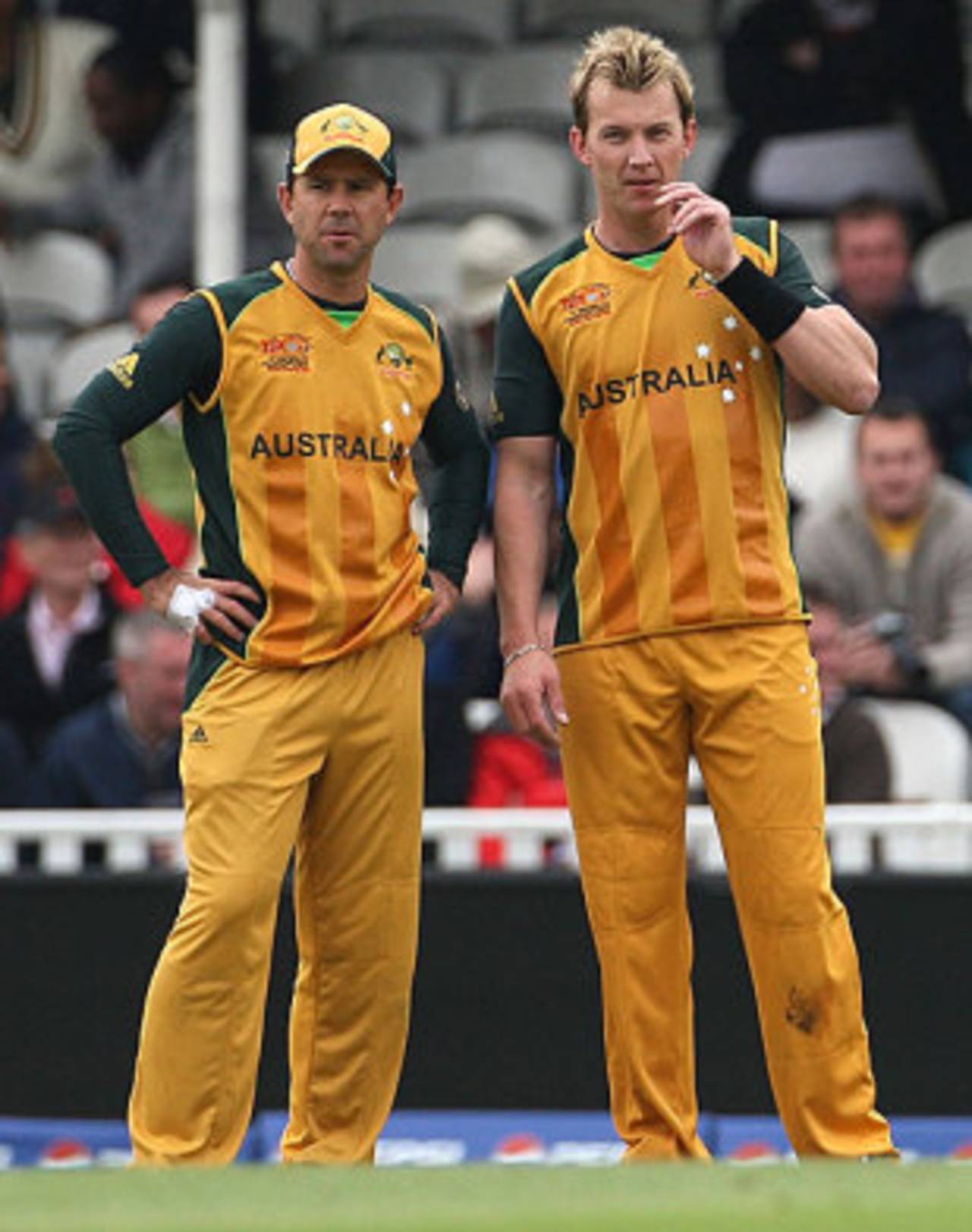Ill-prepared Australia need Twenty20 rethink
Australia mistakenly assume the same players who carry them in Test and 50-over cricket can do so in Twenty20
Brydon Coverdale
09-Jun-2009

Australia still haven't worked out how to approach Twenty20 cricket • Getty Images
Hindsight is always 20/20 and it tells us that Twenty20 remains Australia's blind spot. Their vision for the shortest format was distinctly blurred in the lead-up to the ICC World Twenty20 and as a result they have crashed out in three days and fared worse than Ireland and Netherlands.
Australia continue to mistakenly assume that the players who carry them in Test and 50-over cricket can do the same in three-hour games. That's a bit like believing Haile Gebrselassie will challenge Usain Bolt across 100 metres. And without giving Gebrselassie adequate training.
Prior to the tournament, Australia played six Twenty20 internationals this year. The matches meant nothing but they were the perfect chance to give the likely squad members plenty of practice.
Brett Lee, Mitchell Johnson, Shane Watson and Andrew Symonds each managed only one of the six games, either through injury, being rested or for disciplinary reasons. Michael Clarke played only twice, Michael Hussey was given three matches off and Ricky Ponting was rested for two.
The selectors thought that was enough preparation for this group of players to form the core of Australia's World Twenty20 campaign. It's an Ashes year, they said. Australia had a hectic schedule. The guys needed rest.
There is some merit in that argument. But that's all the more reason to choose a squad of Twenty20 specialists instead of players who rarely play the game at international or domestic level. At once the selectors could have improved their chances of adding another trophy while giving the key Ashes men more opportunity to rest and focus on retaining the urn.
The talent was available. This year the selectors appeared to be readying men like Cameron White, Ben Hilfenhaus, Callum Ferguson and Shane Harwood for the World Twenty20.
Ferguson and Harwood didn't make the squad, Hilfenhaus carried the drinks and White was unused after being a late replacement for Symonds, who was himself another patently misjudged selection. White now faces a monstrous case of jetlag thanks to a pointless four-day
return trip from Melbourne to London.
Then there was Dirk Nannes, the best bowler in Australia's domestic Twenty20 competition for the past two years. He bowls quickly and accurately, gains late swing and is a master of the yorker.
He starred in the IPL and rightly felt insulted when he wasn't included in Australia's 30-man preliminary Twenty20 squad. Over the past few days while Nannes was celebrating the success of his new country, Netherlands, a rusty Lee was gifting batsmen boundary balls.
And while Clarke and his middle-order colleagues found themselves tied down and unable to adapt to the shorter format, Brad Hodge was racking up a hefty heating bill while freezing through a series of bitterly cold Melbourne nights. One of Australia's best Twenty20 batsmen, Hodge was in form after averaging 40 in the recent IPL.
Notably, the only Australian batsmen to have played in the IPL and feature in the World Twenty20 losses were David Warner and David Hussey. Almost inevitably, they looked more dangerous than any of their batting colleagues over the past few days.
Then there was the question of spin. Quality slow bowling was once the most under-rated weapon in Twenty20 as the batsmen had to force the pace. These days that is recognised as a basic tenet of the short format, so much so that Sri Lanka opened the bowling with Sanath Jayasuriya in their win over Australia.
"Spin is having a significant impact on T20 cricket worldwide," Australia's chairman of selectors Andrew Hilditch said when the squad was announced. "Nathan [Hauritz] is well placed to play a significant role in this tournament."
It was all the more puzzling, then, that Hilditch's panel didn't include Hauritz in Australia's tournament opener. When he was given a chance in the second match, he was comfortably the most economical of Australia's specialist bowlers. It was just one more strange decision
in a long list.
After they made a semi-final exit at the inaugural World Twenty20, Australia had resolved to take the format more seriously. Two years later, things have got worse. It's time for Australia to have a major rethink.
Brydon Coverdale is a staff writer at Cricinfo